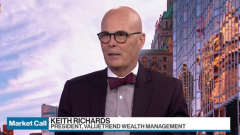Oct 20, 2023
Europe Car Sales Extend Winning Streak on Large Order Backlogs
, Bloomberg News

(Bloomberg) -- European auto sales maintained double-digit growth in September despite higher interest rates raising the cost of acquiring a car.
New-car registrations rose 11% to 1.2 million units, the European Automobile Manufacturers’ Association said Friday, with order backlogs helping manufacturers overcome pressure from higher financing costs for customers. Sales of electric vehicles also edged higher to make up 16% of total deliveries.
Europe’s car market is still feeding off pent-up demand, which is helping to offset economic headwinds and high inflation straining consumer budgets. Bloomberg Intelligence this month raised its new-car sales forecast for the region to 14% for this year, up from 9%, but said easing supply-chain issues will see car output exceed demand during the fourth quarter.
Renault SA this week said its order book in Europe has remained robust, but there are signs of consumer reticence. Volkswagen AG’s third-quarter EV orders have fallen short of its targets, particularly in Europe, forcing the company to lay off temporary workers and cut shifts in German factories in recent weeks.
This year’s strong gains come off a low base and passenger car demand still remains roughly a fifth below pre-pandemic levels, against a darkening outlook. Germany, Europe’s largest economy, hasn’t grown in more than a year and appears set for a double-dip recession. In addition, the threat of a wider war in the Middle East has the potential to disrupt the global economy if more countries are drawn into the Israel-Hamas conflict.
There’s also the threat of escalating trade tensions. The European Commission has started a probe into alleged subsidies that the Chinese government has provided to Tesla Inc., BYD Co. and other local carmakers. The investigation, which also involves BMW AG and other western manufacturers exporting EVs to the EU, is expected to last roughly a year and could see Brussels impose additional import duties.
“It’s too early to say how this will pan out,” ACEA Director General Sigrid de Vries said in an interview with Bloomberg Television. “Europe needs to be more assertive, we also need to hold each other as trade partners accountable — but we’re certainly not interested in initiating any trade wars.”
Sales of battery-powered cars rose 13% to just over 187,000. Gains in France helped offset a 29% decline in Germany, where incentives for business buyers ended.
When it comes to switching to EVs, some consumers remain concerned about a lack of charging infrastructure in Europe, de Vries said.
“We need fast chargers as well and that is not synchronized at the moment,” she said. “So we indeed see some consumer reticence still that we need to overcome.”
--With assistance from Stefan Nicola, Albertina Torsoli and Anna Edwards.
(Updates with ACEA director general’s comment starting in seventh paragraph.)
©2023 Bloomberg L.P.


